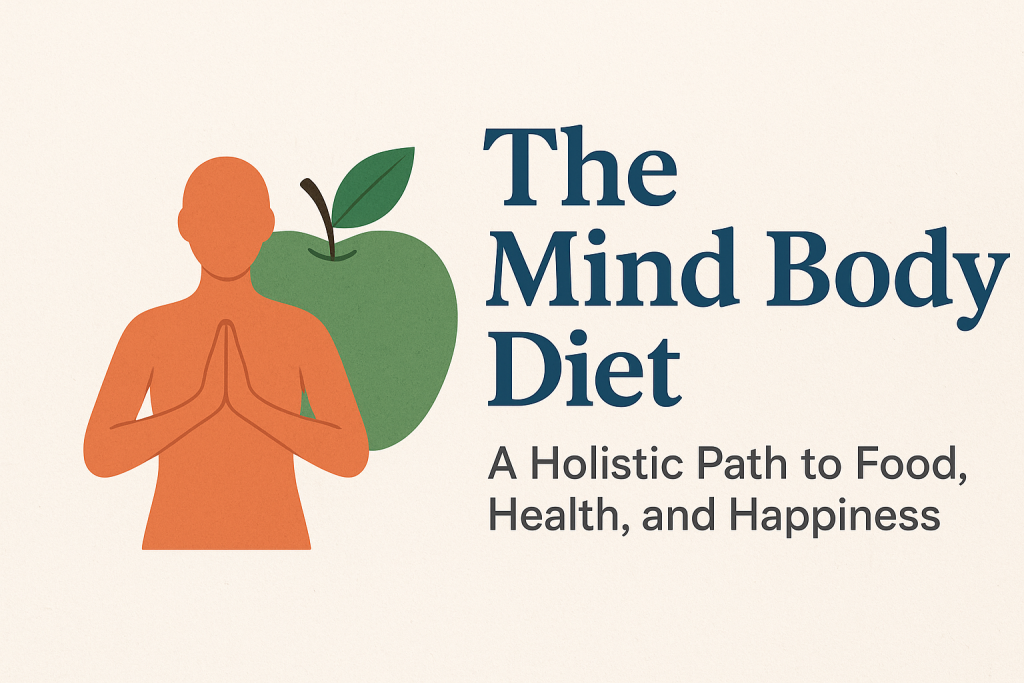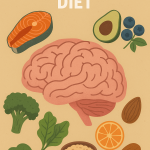When we talk about nutrition, most people focus on calories, carbs, or protein. But what if true health isn’t just about what you eat—it’s about how you think, feel, and live? That’s where the Mind Body Diet comes in. The Mind Body Diet is more than a way of eating; it’s a lifestyle that integrates nutrition, mindfulness, psychology, and self-awareness. Studies show that our thoughts, stress levels, and emotions directly affect digestion, metabolism, and even weight management. By combining mindful eating, balanced nutrition, and stress-reduction techniques, the Mind Body Diet creates a sustainable path to both physical and emotional well-being.
What Is the Mind Body Diet?
The Mind Body Diet is not a fad or a quick fix. It’s a philosophy that recognizes the strong connection between your mental state and your physical body. Instead of focusing solely on food rules or restrictions, it emphasizes awareness—awareness of hunger cues, emotions, and the deeper reasons we eat.
The Core Principles of the Mind Body Diet
- Mindful Eating – Paying full attention to the experience of eating, from taste and smell to the body’s satiety signals.
- Emotional Awareness – Understanding when eating is driven by stress, boredom, or sadness rather than hunger.
- Balanced Nutrition – Choosing foods that fuel both body and mind.
- Stress Management – Reducing cortisol levels that interfere with digestion and fat storage.
- Sustainable Habits – Creating long-term lifestyle changes instead of short-term diets.
Why the Mind and Body Connection Matters in Nutrition
The Science of Stress and Digestion
Your digestive system isn’t just about breaking down food—it’s directly tied to your nervous system. The gut-brain axis is a two-way communication system between your brain and your gastrointestinal tract.
📊 Study Spotlight:
A 2018 article in Harvard Health Publishing showed that stress reduces stomach acid production and slows digestion, leading to bloating, indigestion, and nutrient absorption issues. In other words, how you feel emotionally can determine how well you digest your food.
Emotional Eating and Its Effects
Many people eat not because they’re hungry, but because they’re stressed, anxious, or seeking comfort. Research from the American Psychological Association found that 38% of adults overeat or eat unhealthy foods due to stress. Over time, this can lead to weight gain, poor self-esteem, and guilt cycles.
The Mind Body Diet teaches individuals to recognize emotional triggers and replace them with mindful practices such as breathing exercises or journaling.
The Role of Mindful Eating in the Mind Body Diet
Mindful eating is at the heart of this lifestyle. It shifts the focus from “what to eat” to “how to eat.”
What Is Mindful Eating?
Mindful eating means slowing down, noticing flavors, appreciating textures, and listening to hunger and fullness cues. It transforms eating into a calming ritual rather than a rushed task.
Benefits of Mindful Eating
✔️ Reduced overeating
✔️ Improved digestion
✔️ Enhanced appreciation of food
✔️ Weight regulation without strict dieting
📊 Study Spotlight:
A 2017 review published in Obesity Reviews found that mindful eating reduced binge eating and emotional eating in participants. It also showed improvements in overall psychological well-being.
Nutritional Foundations of the Mind Body Diet
While the Mind Body Diet emphasizes awareness, food quality still matters. Balanced nutrition supports mental clarity, energy, and mood.
Foods That Nourish Body and Mind
- Omega-3 Fatty Acids: Found in salmon, flaxseeds, and walnuts—boost brain function and reduce inflammation.
- Complex Carbs: Whole grains, oats, and quinoa—stabilize blood sugar and support mood regulation.
- Probiotics & Fermented Foods: Yogurt, kimchi, kefir—strengthen gut health, which influences mental health.
- Leafy Greens: Rich in magnesium and folate, which reduce stress and support brain function.
- Herbs & Spices: Turmeric, ginger, and cinnamon—anti-inflammatory and support digestion.
Foods That Disrupt the Mind Body Connection
❌ Processed sugars – spike energy and worsen mood
❌ Excess caffeine – increases anxiety
❌ Alcohol – disrupts sleep and emotional regulation
❌ Processed fast foods – poor nutrient density, linked with depression
Practical Strategies to Follow the Mind Body Diet
Step 1 – Tune Into Hunger Cues
Ask yourself: Am I truly hungry, or am I bored, stressed, or tired? Journaling can help track patterns.
Step 2 – Create a Peaceful Eating Environment
Turn off distractions like TV or phones. Studies show that distracted eating leads to 25% more calorie intake (University of Surrey, 2013).
Step 3 – Practice the 5-5-5 Breathing Technique Before Meals
Take 5 deep breaths, inhale for 5 seconds, exhale for 5 seconds. This activates the parasympathetic nervous system, priming your body for digestion.
Step 4 – Choose Nutrient-Dense Foods
Fill half your plate with vegetables, one-quarter with lean proteins, and one-quarter with whole grains.
Step 5 – Reflect After Eating
Notice how the food made you feel physically and emotionally. Did it energize you or leave you sluggish?
The Mind Body Diet and Weight Management
Beyond Calories In, Calories Out
Traditional dieting focuses only on calorie restriction. The Mind Body Diet focuses on understanding why you eat and how stress and emotions drive food choices.
📊 Study Spotlight:
In a 2014 study published in Appetite, participants practicing mindful eating consumed less food overall and reported higher satisfaction levels, proving weight loss doesn’t always require strict calorie counting.
Sustainable Weight Management
The Mind Body Diet helps maintain a healthy weight naturally by teaching:
- Intuitive portion control
- Reducing emotional overeating
- Supporting metabolism through stress reduction
The Psychology of Eating in the Mind Body Diet
Rewiring Food Beliefs
Many of us carry childhood beliefs about food—like finishing everything on our plate or rewarding ourselves with sweets. The Mind Body Diet helps reframe these beliefs to healthier ones.
Gratitude and Food Appreciation
Pausing for gratitude before meals has been shown to increase feelings of satisfaction and reduce overeating (UC Davis, 2015).
The Spiritual Side of the Mind Body Diet
For some, the Mind Body Diet also integrates spirituality. This doesn’t necessarily mean religion—it can mean connecting with nature, practicing meditation, or developing inner peace.
Meditation and Eating
Short meditation before eating has been proven to improve digestion and food satisfaction.
Common Challenges and How to Overcome Them
- Emotional Triggers – Replace stress-eating with journaling or movement.
- Time Constraints – Meal prep and mindful snacking can help.
- Social Pressure – Practice mindful choices without over-restricting.
- Old Habits – Focus on progress, not perfection.
Creating Your Own Mind Body Diet Plan
Here’s a sample 7-day Mind Body Diet framework:
- Day 1: Slow breakfast with mindful chewing, write hunger journal.
- Day 2: 10-minute meditation before lunch.
- Day 3: Swap processed snack for fruit with yogurt.
- Day 4: Practice gratitude before dinner.
- Day 5: Eat one meal tech-free.
- Day 6: Reflect on emotional triggers in journal.
- Day 7: Prepare balanced meal with family/friends to reduce stress.
Final Thoughts – Why the Mind Body Diet Works
The Mind Body Diet isn’t just about food. It’s about creating harmony between your thoughts, emotions, and body. By practicing mindful eating, choosing nourishing foods, and managing stress, you can transform your relationship with food for life.
This isn’t about restriction—it’s about awareness, empowerment, and sustainable health. If you’ve struggled with dieting in the past, the Mind Body Diet might just be the holistic, compassionate solution you’ve been searching for.
Related Resource
If you’re curious about combining mindful eating with time-based strategies, check out our guide on the benefits of 16/8 fasting once a week. It’s a flexible way to support energy, metabolism, and overall wellness without the pressure of strict dieting.



